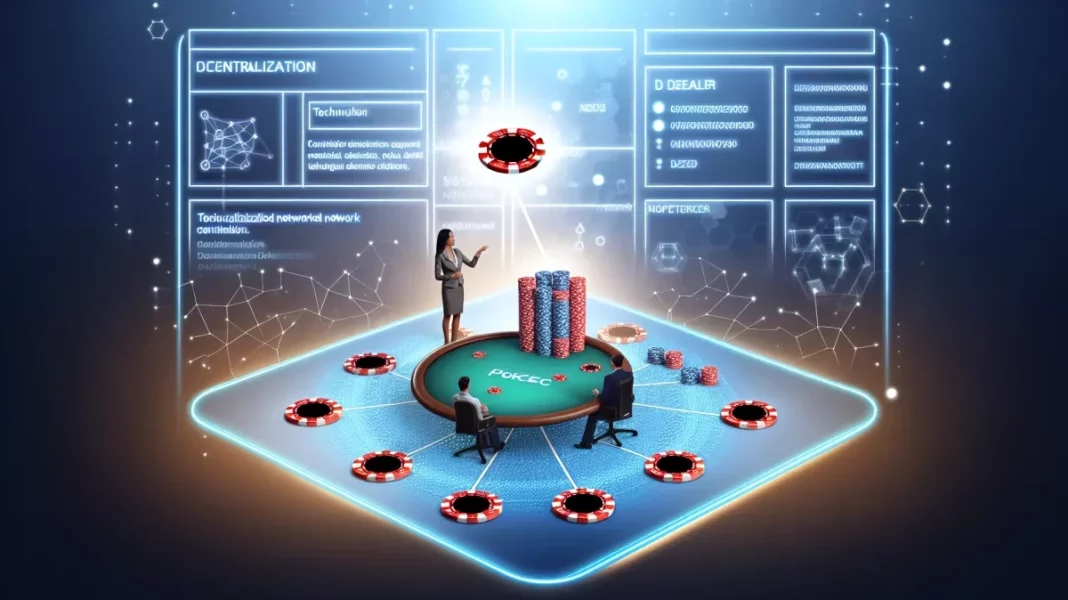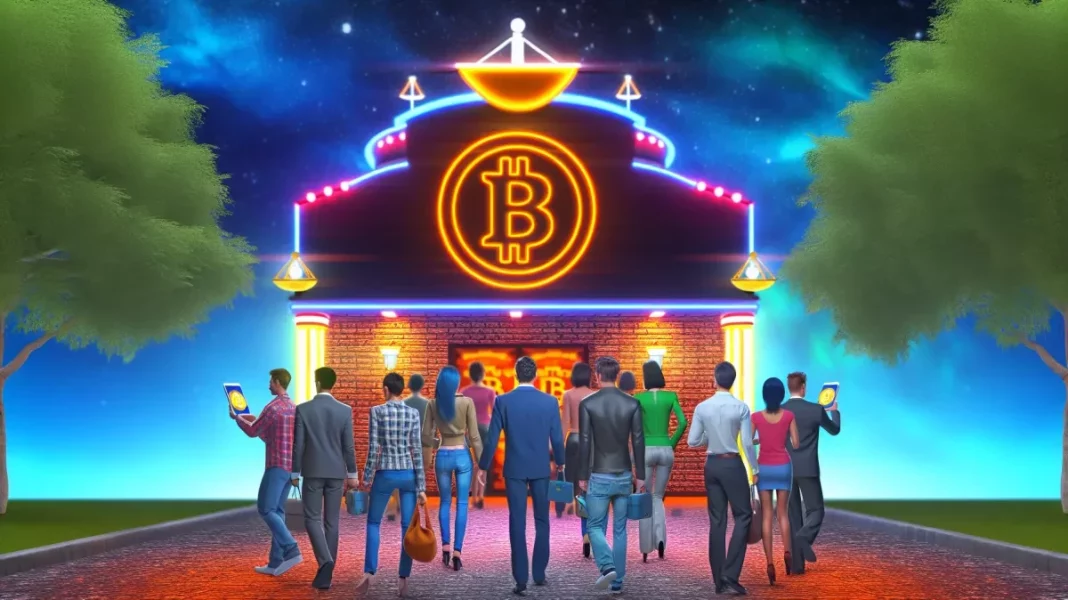In an era where digital transformation is not just a trend but a necessity, the iGaming industry has been witnessing a revolutionary shift. Decentralized Poker is not just a buzzword among tech enthusiasts and gamblers alike, but a burgeoning reality that is reshaping the world of online betting. Central to this phenomenon is the underlying technology facilitating peer-to-peer (P2P) transactions, offering a level of transparency and fairness never seen before in online gambling.
At the heart of Decentralized Poker lies the blockchain, a technology that has found applications far beyond its initial implementation in cryptocurrencies like Bitcoin. Blockchain operates on a distributed ledger principle, where all transactions are recorded on multiple computers across the world, making any form of tampering virtually impossible. This adds a security layer that traditional online poker platforms, which usually rely on a central server, cannot match.
Smart contracts are the backbone of blockchain-enabled Decentralized Poker platforms. These self-executing contracts with the terms of the agreement between buyer and seller or, in this case, player and platform, written directly into lines of code, automate and enforce the rules of the game. This negates the need for a middleman to handle the stakes or payouts, ensuring players can engage with one another directly and trust the platform to honor its commitments.
One of the groundbreaking aspects of Decentralized Poker is the use of blockchain to generate a provably fair system. This concept utilizes cryptographic algorithms to allow players to verify the fairness of every shuffle, deal, or dice roll themselves. The poker platform provides a hashed seed number that players can use to check the randomness of the outcomes. This provides a level of transparency unthinkable in the traditional online poker world, where players have to trust the platform’s word that the games are fair.
But how does this technology reshape the experience for the end-user, the poker enthusiast keen on a game of Texas Hold’em or Omaha? Peer-to-peer betting inherently means reduced costs: no massive overheads for platform maintenance, no fees paid to intermediaries, and, thanks to the decentralized nature of blockchain, minimal transaction fees. The savings can then be passed on to the players in the form of lower rakes or higher payouts.
Cryptocurrencies, the original vehicle for blockchain technology, remain integral to Decentralized Poker. Betting with cryptocurrencies offers a level of anonymity and security that fiat currencies can’t match, given that crypto transactions do not require personal banking information. Furthermore, the speed of transactions is unparalleled, with deposits and withdrawals capable of being settled in minutes rather than the days it might take through traditional banking methods.
Of course, the decentralized system is not without its challenges. Regulatory hurdles are significant, with different jurisdictions taking varied stances on the legality of cryptocurrency and online gambling. Moreover, the user experience in decentralized applications (DApps) historically has been less developed than their centralized counterparts, although this gap is rapidly closing.
As the technology matures, we witness more robust and user-friendly platforms entering the market. They range from entirely decentralized outfits to ‘hybrid’ platforms that offer blockchain’s benefits while maintaining some traditional elements to navigate regulation and provide a familiar experience to users transitioning from conventional online poker rooms.
Decentralized Poker is still in its relative infancy, yet it’s clear that its impact will be substantial. With advancements in scalability, interoperability, and regulation, Decentralized Poker could well become the standard for online gambling in the future. It promises to bring about a more democratic betting environment where the power is in the players’ hands – a reshuffling of the deck that could redefine online poker as we know it.
As the technology behind decentralized poker evolves and more players embrace the idea of P2P betting, the industry will likely see significant growth. Blockchain’s immutable ledger, combined with the transparency of smart contracts and the allure of cryptocurrency’s anonymity and security, creates a potent mix for those seeking a fairer and more equitable gaming experience.
In conclusion, Decentralized Poker is not just a pipe dream; it is a transformative movement that melds technological prowess with the timeless allure of one of the world’s most popular card games. The iGaming industry is standing at the cusp of a new era, one where trust is built into the system, and the barriers to entry are lowered for players worldwide. Decentralized Poker holds the promise of a truly global poker community, unhindered by geography and unbound by the constraints of traditional online casinos. As this technology continues to advance and gain acceptance, the possibilities are as expansive as the network itself – vast, interconnected, and rich with potential.



